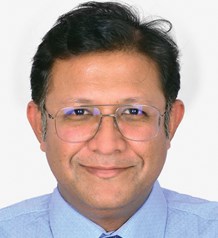Chennai, TAMIL NADU / Muscat, OMAN :
Majees Technical Services continues to look at new lines of business in line with the growing need for localization of services and manufacturing.

______________
BIOGRAPHY
Ishrath Habibulla is an experienced Managing Director with a demonstrated history starting up and operating profitable businesses in varied sectors including oil, gas, power, construction, automation. He is skilled in negotiation, business planning, and sales. He is also a strong business development professional. Since 2006, he has been the Managing Director of Majees Technical Services, positioning the company as a leading turnkey security and telecoms contractor, as well as flare system manufacturer. He holds an MBA from the University of Florida, US, and a BSc in electrical engineering from Crescent Engineering College.
_____________________
INTERVIEW :
What role does MTS play in Oman’s market and what is your medium-term growth strategy?
Majees Technical Services started purely as a trading organization and then moved onto services and eventually into manufacturing, mostly geared toward the oil and gas industry, targeting the Middle East, North Africa, and Southeast Asia. We continued the traditional lines of business and added newer lines under our new focus on manufacturing. We are looking to bring in skillsets that are not present in Oman. At present, we produce flare packages in Oman, but we want to take this to the next level and produce more process packages. On the digital transformation aspect, we already provide cybersecurity solutions for a number of banks. Internally, we are exploring robotic process automation. In this sense, our priorities for 2020 can be summarized as increasing the local content in our teams, exporting more, and implementing more digital strategies.
Are these avenues for growth a reactionary approach to how the market has evolved?
In the last few years, the market has moved toward the localization of services and manufacturing. There is a policy that Omani-made products must be given a 10% price preference, especially in engineering services and equipment. On the employment side, local companies are under tremendous stress because of Omanization. On the digital transformation side, although we are one of the leading telecoms and security providers in Oman, PDO is leading the charge because it established digital transformation as a unit within the company, setting new rules of engagement and pulling in companies like us who are service providers. This might lead to the development of some models that are relevant for all players.
How will Oman strike a balance between the government trying to engage SMEs and big established players?
In the last few years, a handful of companies that were once SMEs have grown, and there is currently a lack of SMEs. Young companies will grow to fill that vacuum, while the larger companies will no longer compete on smaller projects due to high costs. The marketplace will adjust itself. The bigger companies might suffer, or they might even grow their prospects and revenues. Nonetheless, there is space for new players to come in.
How do you expect the relationship between local players and foreign players to evolve?
The new foreign capital investment law will possibly allow foreign investors to hold up to 100% ownership. We welcome competition, though at the same time we have to be careful about foreign manufacturers if we want to develop a manufacturing industry in Oman. Foreign investors will be more confident in deploying capital, and the practice of having silent shareholding will also stop, which means serious Omani businesspeople will probably start investing more. Previously, Omani businesspeople were investing because the law required them to be a 30% shareholder. More active engagement between all shareholders is good for the entire economy.
What is the key for filling the skills gap in the market in a sustainable way?
It has been a challenge because we can no longer hire foreign engineers, and there are not many engineers in the local market. The private sector has to be profitable at the end of the day, which means we need to find competent people with the right skills and work ethics. We are training fresh Omani graduates and helping them assume junior management and mid-management roles in the future. We need to continue to improve the workplace and grow our presence on social media so that we can better attract young Omanis.
Where will technology have the greatest impact within your industry, and what is your definition of innovation?
The deepest impact will be on how we market ourselves. The market is still dependent largely on local clients, but that is changing. As a business, you also want to innovate in terms of new products. For us, innovation is using the latest technology to improve your processes and increase profitability.
source: http://www.thebusinessyer.com / The Business Year / Home> Oman 2020> Industry> Interview / by The Business Year, UK / UAE – 2020








